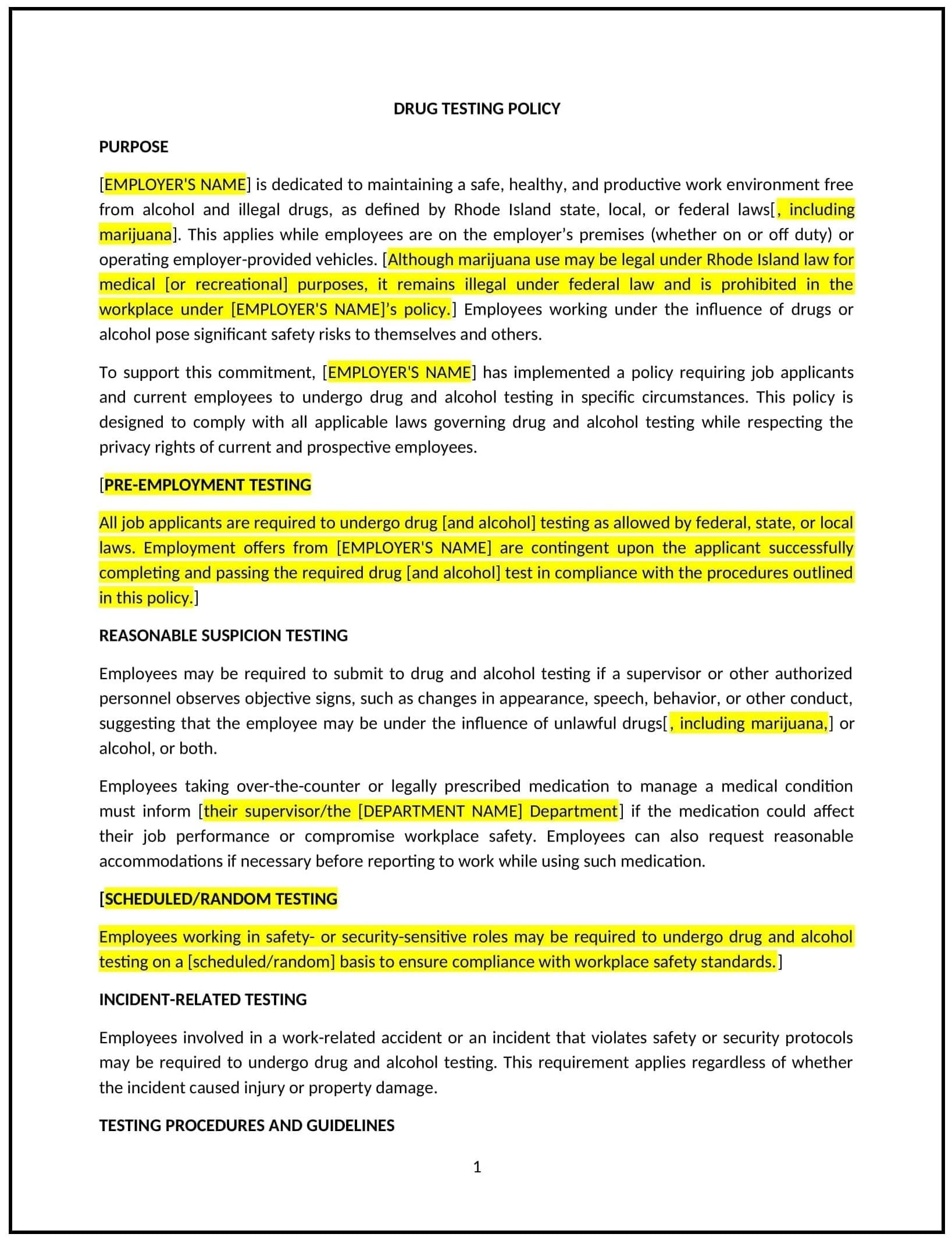Got contracts to review? While you're here for policies, let Cobrief make contract review effortless—start your free review now.

Customize this template for free
Drug testing policy (Rhode Island)
This drug testing policy is designed to help Rhode Island businesses maintain a safe and productive workplace. It outlines procedures for pre-employment, random, and post-incident drug testing.
By adopting this policy, businesses can reduce workplace accidents, ensure compliance with state laws, and promote a drug-free environment.
How to use this drug testing policy (Rhode Island)
- Define testing types: Specify when drug testing is required, such as pre-employment, random, or post-incident.
- Establish procedures: Outline steps for conducting drug tests, including notification and sample collection.
- Address consequences: Describe the consequences of a positive test result, such as disciplinary action or termination.
- Train managers: Educate supervisors on handling drug testing procedures and maintaining confidentiality.
- Review and update: Assess the policy annually to ensure it aligns with evolving business needs and legal standards.
Benefits of using this drug testing policy (Rhode Island)
This policy offers several advantages for Rhode Island businesses:
- Promotes safety: Reduces the risk of workplace accidents caused by impaired employees.
- Ensures compliance: Aligns with Rhode Island’s drug testing laws and regulations.
- Enhances productivity: Maintains a drug-free workplace, fostering a focused and efficient workforce.
- Builds trust: Demonstrates to employees and stakeholders that the business prioritizes safety and compliance.
- Aligns with best practices: Supports adherence to workplace safety standards.
Tips for using this drug testing policy (Rhode Island)
- Communicate the policy: Share the policy with employees and include it in the employee handbook.
- Provide training: Educate managers on handling drug testing procedures and maintaining confidentiality.
- Monitor compliance: Regularly review drug testing practices to ensure adherence to the policy.
- Address issues promptly: Take corrective action if drug testing procedures are mishandled.
- Update regularly: Assess the policy annually to ensure it aligns with evolving business needs and legal standards.